By 1997, the grunge explosion had fizzled out, leaving behind a landscape where indie bands could carve out their own niche without the pressure of massive commercial expectations. It was a time when the DIY ethos was alive and well, especially in the Midwest, where bands like Poster Children were pushing the boundaries of what it meant to be indie.
Emerging from the fertile ground of Champaign, Illinois, Poster Children were already seasoned veterans of the underground scene by the time they released RTFM (short for “Read The F***ing Manual”) on Reprise Records. Known for their sharp blend of post-punk energy and indie rock sensibility, they were one of those bands that seemed to thrive on doing things their own way—eschewing the mainstream for a more authentic, hands-on approach.
RTFM wasn’t just another album; it was a statement. At a time when the major labels were still trying to figure out what to do with the remnants of alternative rock’s commercial peak, Poster Children delivered an album that was big, loud, and unapologetically creative. They didn’t just make a record—they programmed the enhanced CD themselves, adding a layer of tech-savvy innovation that was unheard of for most bands at the time.
Poster Children weren’t just another band riding the wave of ’90s alternative rock—they were a force unto themselves. Formed in the late ’80s in Champaign, Illinois, the band quickly gained a reputation for their high-energy shows and a sound that blended the raw edge of post-punk with the melodic sensibilities of indie rock. They were the kind of band that didn’t just play music—they lived and breathed it, building a loyal following through relentless touring and a no-nonsense approach to their craft.
By the time they hit the studio to record RTFM, the band had already released several albums that cemented their status as indie rock mainstays. Their sound had evolved, becoming more polished without losing the raw intensity that made them stand out in the first place. With Rick Valentin’s distinctive vocals and guitar work, Rose Marshack’s powerhouse bass lines, Jim Valentin’s complementary guitar tones, and Howie Kantoff’s solid drumming, Poster Children had found a lineup that clicked, both creatively and personally.
From the moment RTFM kicks off with “Black Dog,” you know you’re in for something different. The track opens with a quiet, almost deceptive intro before exploding into a wall of sound that sets the tone for the rest of the album. It’s loud, it’s bold, and it perfectly encapsulates what Poster Children were all about at this point in their career—pushing boundaries while staying true to their indie roots.
The album walks a fine line between aggressive post-hardcore and catchy, almost pop-like melodies. Tracks like “Dream Small” and “King of the Hill” showcase the band’s ability to write hooks that stick in your head without sacrificing the grit and edge that defined their sound. Rose Marshack’s bass work on “King of the Hill,” in particular, stands out as a driving force, giving the song a groove that’s impossible to ignore.
One of the unique aspects of RTFM is how it incorporates the era’s technology into the listening experience. The enhanced CD, which the band programmed themselves, was a cutting-edge move in 1997. It included interactive features, videos, and behind-the-scenes content that added a whole new layer to the album. Unfortunately, the technology hasn’t aged well, and much of that content is now hard to access, but at the time, it was a testament to the band’s forward-thinking approach.
Lyrically, RTFM is just as intriguing as it is musically. Rick Valentin’s lyrics often delve into themes of disillusionment, technology, and the human experience—all filtered through a distinctly nerdy, yet relatable lens. On tracks like “0 for 1,” Valentin uses clumsy sports analogies to explore feelings of inadequacy and the struggle to find one’s place in the world. It’s an approach that resonates, especially for anyone who’s ever felt like an outsider.
The album also features some interesting production choices, thanks in large part to producer Bryce Goggin. Known for his work with bands like Pavement, Goggin brought a mix of indie credibility and technical expertise to the project. The result is an album that sounds huge—full of bombastic guitars, thick bass lines, and drums that hit like a ton of bricks. Yet, despite its size, RTFM never loses the intimate, DIY feel that makes Poster Children so endearing.
RTFM marks an important point in Poster Children’s career. It was their last album on a major label, and it’s clear that the band was aware they were at a crossroads. The album didn’t sell millions of copies, but it did solidify their reputation as one of the most innovative and hard-working bands of the ’90s indie rock scene.
Interview with Rick Valentin of Poster Children
Jeremy Amend: The album artwork for RTFM features a 3/16 note. Was that just a funny little add-on to avoid using a simple eighth note, or is there some hidden meaning or inside joke behind it?
Rick Valentin: No inside joke—it was just the most aesthetically pleasing note in terms of design.
JA: In my opinion, the multimedia content on RTFM is a historical document. It’s the first of its kind to be created entirely by a band instead of using label resources or hiring an outside party to create, I believe. Was the decision to make this an enhanced CD entirely the band’s, or was there any sort of label pressure or encouragement to make it?
RV: I remember it being a band decision. There had been a few interactive/enhanced CDs: The Residents, David Bowie, and, I think, Soundgarden, built by fledgling multimedia companies. We wanted to do something like that and brought it up at a lunch with the label folks (who were actually pretty cool, Howie Klein and the “alternative marketing” crew). They said, “Yeah, that’s a great idea, you should do that.” I was thinking we’d team up with one of those multimedia companies to build it (on the label’s dime), but Howie K. said, “You guys are programmers, you should just do it.”
JA: Was Bryce Goggin as engineer/mixer a choice the band was completely trusted with, or maybe a name on a list of choices provided by the label?
RV: We had been unhappy with the original mixes from the Jr. Citizen sessions, and our A&R guy (Joe McEwen, who was pretty cool too, also signed Uncle Tupelo and Aphex Twin to Sire) had heard Bryce Goggin’s mixes of Pavement’s Wowee Zowee (I think before the record was out) and suggested him to remix Jr. Citizen and the Just Like You EP, which he did. Bryce had the ability to take indie rock “up a notch” sonically while still maintaining the indie energy. For RTFM, we started recording (and producing) the album ourselves with Mark Rubel engineering, but it kind of fell apart, and we asked Bryce to come in and produce/engineer based on his track record with Jr. Citizen. I don’t remember getting suggestions from the label for producers, although I have a vague memory of Howie Klein making a suggestion along the lines of “Hear me out, don’t say no immediately, what about Ted Templeman?” At the time, I was like, “Whaaa?” But now I think that might have been really cool, though it probably wasn’t a realistic notion. Also, I think our A&R guy asked, “If you could get any producer, who would it be?” And I said Brian Eno, and he went, “Ugh, not an old guy, someone young and cool!”
JA: If Bryce was selected by Poster Children, were there any particular bands or albums in his resume that drew you to him as the final choice?
RV: See above. We had Bryce do “New Boyfriend” as a test mix for Jr. Citizen, and he pulled it out of incoherence, so we were sold on him.
JA: Did you encounter any significant budgetary or logistical issues while recording RTFM?
RV: We didn’t. We recorded in Champaign at Pogo and mixed at Donald Fagen’s (!) studio in NYC (for relatively cheap). I think we came in under budget and used the leftover to buy our own recording gear because we knew it was probably going to be our last record for the big boys.
JA: Was “Blackdog” always the planned opening track with that one-minute lead-in of organ/keyboard sounds, or was there a lot of fiddling with the sequencing before that decision?
RV: I think so; it’s an obvious opener. And then “Happens Everyday” as the end to kind of create a “loop”: starting the album with feedback and ending the album with weird guitar arpeggios. Even though RTFM was CD only, we followed the album sequence template, 5 or 6 songs per “side,” like all of our records. So for instance, “21st Century” is the B-side opener. The fiddling on the sequencing happens in the in-between tracks. Find an opener, find a closer, find a side 2 opener, and then fill in the rest.
JA: At the beginning of “Speed of Light,” there is audio of Bryce or one of the guys in the band saying that you are rolling on take six. Were there a lot of full band takes when recording this album, and did any particular song stand out as requiring significantly more takes than the rest?
RV: That is Bryce at the start of “Speed of Light” (maybe the only non-band member vocals on any Poster Children album?). I do think we did a lot of full band takes. I actually have all the 24-track reel-to-reels from those sessions in my basement, and there are A LOT of them. Although we did basic tracks for something like 17 songs, some of which showed up later in different, re-recorded form on New World Record/DDD. I feel like “Happens Everyday” took a while to get right.
JA: For me, the first moment on RTFM where I asked, “How are they doing that?” is on “Dream Small.” Is Howie hitting a real large tom caught with an isolated mic? Also, Rose’s bass (I think) has this Big Muff-like distortion that only seems to hit on the lowest note, with the rest of the notes being much clearer. Do you recall what went into making these sounds?
RV: Bryce liked the heavy “Beatles” compression I had done on the demo recording for “Dream Small,” so he slammed the room mics on the drums. That can cause the toms to really “explode.” The same thing for the bass: I think it’s just super compressed, and the lower tones are popping out. I believe Rose used a Boss Heavy Metal distortion on her bass for that one. The drums are also a loop. Bryce had an early multitrack digital setup and tracked the drums on tape, digitized a section, looped it, and printed it back to tape—not a big deal these days, but back then it was a somewhat involved process.
JA: There are some unusual time signatures, time signature mixes, and at least one instance of a 3/4 or 6/4 signature not feeling like a 3 or 6 at all. Were any of these more difficult or more fun than others? Was Howie a proponent or instigator for any of these, or did he just go with the flow?
RV: I think I just have a broken clock, so when I play a riff, everybody just has to figure out where the one is. What’s weird is that the parts don’t seem difficult; they feel natural. Almost everything has a constant beat; it’s just not always in even chunks of 4.
JA: Would you say this is the most keyboard-heavy album from Poster Children? I know there are very keyboard-driven songs later on, but as an album, this one seems to have a lot of fun little keyboard flourishes throughout. Would the work on Salaryman’s debut possibly have affected sounds on this album as you honed in on what you wanted for RTFM?
RV: I feel like the Salaryman influence started leaking in a bit later. Some of the songs and outtakes from the DDD era came from rehearsals or jams that included guitars and keyboards. The RTFM keyboard stuff feels like an extension of the Jr. Citizen guitar + keyboard approach.
JA: I know you are not a big fan of sports. Is the ubiquity of sports terminology (especially that of baseball) an accidental influence on your lyrics for “0 for 1”? Was there a bit of humorous irony intended there?
RV: Clumsy sports analogies fit nicely with lyrics from the nerd perspective.
JA: You’ve always been able to cleverly draw from topics like science, interpersonal relationships, social issues, and politics to create beautiful themes and references within your lyrics. Do you tend to think of the feeling or situation first and then use references to these other topics to enhance your lyrics or exposition? Or do you typically think about a particular subject and realize there’s an analogous relationship to something that more people identify with? I might be digging a bit too much, but “Speed of Light” seems like an excellent example of this. Perhaps just explaining your thoughts behind this song would be the best way to answer these questions. Sorry.
RV: “Speed of Light” came from reading Michio Kaku’s Hyperspace, and I think what happened is like what you say: I personalized the concepts that were illustrated in the book. I guess it’s kind of like a Space Oddity / Ashes to Ashes approach—except looking at the lyrics, I’m realizing it’s from the perspective of a person left behind on Earth by someone who is traveling near light speed, rather than from the lonely astronaut’s perspective. And then it works generally—it’s a song about being left behind by someone who is on a greater trajectory. I think that’s the way it works: I write about these concepts, somewhat literally but also personally, and then, somewhat automatically, they translate to a more general feeling or experience.
Jeremy Amend: What inspired the lyrics for “Blackdog”?
Rick Valentin: Like a lot of our songs, the music came first, and we gave the song a nickname (I think we thought naming songs after Led Zeppelin songs was funny), and in this case, I used the nickname as a launching point for lyrics. It’s a mashup of Winston Churchill’s “black dog of depression” and ideas about being at the mercy of the chemicals in your brain—enjoying the up time while it lasts.
JA: Is “Pearly Gates” an anti-drug song, or is it more about living on the edge in general? Or am I completely missing the point?
RV: When I was a kid, I’d hear certain rock songs, and they would have these lyrics that were scary, but I didn’t fully understand what they were talking about (usually sex and/or death and/or drugs). So this song was an attempt to capture that weird feeling—mysterious adult horror. I did the math a while ago and realized I was 15 years old when I bought and listened to the Lou Reed album The Blue Mask and was completely fascinated and traumatized by the title track—it’s a lot for a kid to process!
JA: Are you at all creeped out by how prophetic “21st Century” seems these days?
RV: I’d say it’s more of a “See, I was right!” feeling than a creepy one. Honestly, it seemed kind of obvious where things were going. There were plenty of people talking about what late-stage capitalism would look like, and that informed the lyrics. I even say that in the song—“you don’t need a crystal ball to trace the rise and fall”—not so much prediction, more like extrapolation.
JA: Final question: Is there a possibility of a reissue of RTFM (vinyl or otherwise)? 2027 will be here before we know it!
RV: Unfortunately, the record is still owned by the Brothers Warner, and to do a reissue would involve licensing the record from them, which is prohibitively expensive. Although there is hope, with this 35-year rule for copyright reversion to the author—we may get the album back in 1997 + 35 = 2032.
JA: Perfect! Thanks again! Now I have something to look forward to eight years from now…Keeps me going. Assuming albums with lyrics questioning the government have not been outlawed by our corporate overlords by then, maybe it’ll happen.
RV: Ha! Irony of ironies, we get the record back just in time for it to get banned. 2037, here we come!
Songs in this Episode
Intro - Black Dog
18:49 - 0 for 1
22:39 - Dream Small
25:33 - King Of The Hill
30:45 - Rock That Doesn't Roll/Dope Nostalgia podcast promos
44:55 - 21st Century
48:00 - Music Of America
1:01:40 - Afterglow
Outro - Happens Everyday
Make Your Voice Heard!
In our quest to explore the depths of 90s Rock, we rely on you, our listeners. Your suggestions drive our show – be it an underrated classic or a forgotten gem. By joining our DMO Union on Patreon, you help us stay independent and ad-free and gain the power to vote on and choose the albums we dive into each year. Together, let's unearth the treasures of 90s Rock, one listener-powered episode at a time.



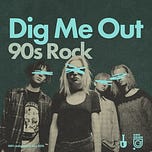




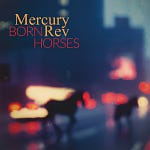
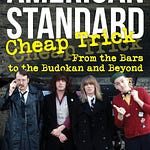
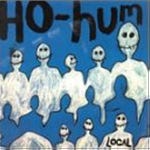
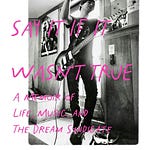
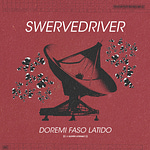
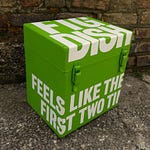
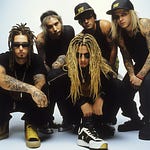
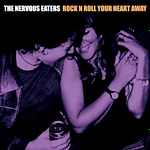
Poster Children - RTFM | 90s Rock Revisited